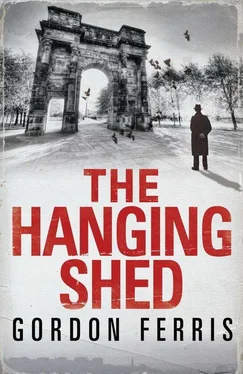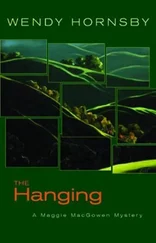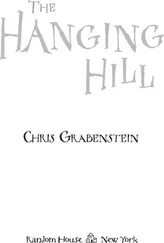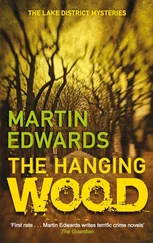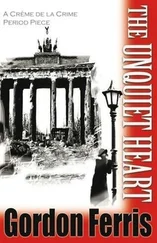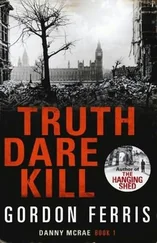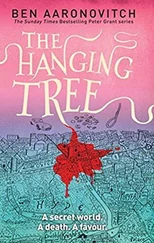Gordon Ferris - The Hanging Shed
Здесь есть возможность читать онлайн «Gordon Ferris - The Hanging Shed» весь текст электронной книги совершенно бесплатно (целиком полную версию без сокращений). В некоторых случаях можно слушать аудио, скачать через торрент в формате fb2 и присутствует краткое содержание. Жанр: Триллер, на английском языке. Описание произведения, (предисловие) а так же отзывы посетителей доступны на портале библиотеки ЛибКат.
- Название:The Hanging Shed
- Автор:
- Жанр:
- Год:неизвестен
- ISBN:нет данных
- Рейтинг книги:5 / 5. Голосов: 1
-
Избранное:Добавить в избранное
- Отзывы:
-
Ваша оценка:
- 100
- 1
- 2
- 3
- 4
- 5
The Hanging Shed: краткое содержание, описание и аннотация
Предлагаем к чтению аннотацию, описание, краткое содержание или предисловие (зависит от того, что написал сам автор книги «The Hanging Shed»). Если вы не нашли необходимую информацию о книге — напишите в комментариях, мы постараемся отыскать её.
The Hanging Shed — читать онлайн бесплатно полную книгу (весь текст) целиком
Ниже представлен текст книги, разбитый по страницам. Система сохранения места последней прочитанной страницы, позволяет с удобством читать онлайн бесплатно книгу «The Hanging Shed», без необходимости каждый раз заново искать на чём Вы остановились. Поставьте закладку, и сможете в любой момент перейти на страницу, на которой закончили чтение.
Интервал:
Закладка:
He couldn’t recall a thing about the night before he was arrested, except he’d taken some of his ‘painkillers’, maybe too much. And that in that state it was perfectly possible for someone to have entered his flat and planted the evidence.
It was a brave try, Sam, I thought. But the prosecution kept pounding away at the piles of evidence and the confession. Hugh never quite managed to retract his confession, just told the court that he’d said anything to be left alone. When they introduced the forensic discovery that the boy’s body bore traces of heroin, it should have been a unanimous verdict of guilty. Sam’s closing speech about this heroic warrior who’d given his all for his country must have been a cracker to leave enough doubt in a few minds. She was even getting to me. The circumstances of finding the body and then – conveniently – the evidence, were simply too pat to be true. They searched the tiny single-end once and found nothing. They searched again and found a bucket load of incrimination. Why would Hugh do that? Why would he drag the body to the coal cellar? The lack of blood round the body made it as clear as daylight that the slaughter had taken place elsewhere. It stank of a frame-up. But by whom? And why? Why would anyone have it in for a poor wee junkie like Hugh? I’d seen his hands; it seemed implausible that he could have wielded a knife far less left prints all over it.
But if Hugh didn’t do it, then, obviously enough, someone else did. It gave me a toehold. If there was another killer he kept the boy somewhere other than Hugh’s flat or the coal cellar and probably killed him there. Find the location; find the killer. He had to be someone who knew Hugh, knew his habits – especially his heroin one – and was local. He – and I suppose it was a he – must have been able to identify Hugh’s shirt on the washing line, steal it and cover it in the blood of the child. But wasn’t that stretching things too far? A premeditated act of murder and incrimination? Could I conceive of a person who was so demented yet so calculating that he knew he was going to murder the boy and that before he slaughtered him he would have to pinch a shirt to catch the blood? It couldn’t have been an afterthought to acquire Hugh’s shirt; the blood would have congealed and dried within hours, and how would the killer have known he’d find just the perfect piece of incriminating evidence? Name tag and all? Maybe there were two killers? Or they had had some helpful assistance in planting the evidence from our guardians of the peace themselves…
Which gave me my next stop.
SIXTEEN
‘Where to, friend?’ asked the taxi driver.
‘Do you know Tobago Street police station?’
It caused a big sigh from the front seat. ‘Intimately. Ah’ve bailed ma faither-in-law out o’ there on many’s the occasion. Drunken aul’ sod…’
He gave me his troubles for the next ten minutes of our journey. I contributed with a random few tsks and ayes out of politeness. But my attention was on the fair city streets that I’d pounded in my good black uniform a lifetime ago. I rolled down my window to sample the air and take in the smells and sounds.
There was nothing like the damage done to London. It was a struggle for German bombers to reach this far, and none of their daunting V1s or V2s made it beyond North London. Yet they had tried their damnedest to hit the shipbuilding capacity and ammunition production of the Clyde, and some stray bomb loads had straddled the residential areas in central Glasgow. The place that really took a pasting was the town of Clydebank. Back in March 1940, the Luftwaffe had filled their fuel tanks to the brim and swarmed across the North Sea. I might even have heard the murderous drone of their massing bombers while I lay in a French field as part of the ill fated British Expeditionary Force. The bombers made it to Glasgow but missed the yards and instead razed an entire community. Only a handful of houses out of 12,000 were left unscathed. Hundreds of innocent folk – weans and women mainly – were blown to bits or crushed in the rubble of their homes. I wish I could say me and my mates in the 51st Highland Division took it out on the German army in return. But it didn’t quite turn out that way. Not then. Not for that incarnation of the 51st.
I wrenched my thoughts back to the present. Outside the window of my taxi time had stood still. There were still groups of capped men huddling on street corners puffing on fags, waiting for something to come up at the yards. These were the unskilled, the casuals, the soldiers back from the war with no job and dwindling hope. It had the ominous tang of the thirties again, the years of the Depression and the Hunger Marches. Where were the laurel leaves and the spoils of victory?
The pawnshops with their three brass balls were doing a steady trade. The old gaffers handed over their wife’s wedding ring on the Wednesday to tide them over till pay day on Friday, then they liberated the abused gold bands on the Saturday. Weekend wives, these long-suffering women, some still wrapped in their plaids, oblivious to fashion as much as to the lengthening and warming days. Some of the younger women – Highland lassies mainly – had babies tucked inside their tartan rugs, tight-swaddled like papooses with only fat red faces on show.
Suddenly, out of a close, a squadron of kids with skint knees and holed vests shot into the street. Their leader ran with the balance of a Scotland winger taking on the English defence at Hampden. His right arm was outstretched and holding an iron bar which drove a black metal hoop. This gird and cleek was a top-notch affair. I’d made my own out of an old pram wheel with the spokes and tyre removed for the cleek. And for a gird, we used sticks torn from trees to propel the hoop along. This boy’s must have been made at the yards; it was a blacksmith’s job to fashion the ring of iron and fix one end of the gird to it with another smaller hoop. The best thing was the satisfying ear-splitting noise as the cleek clattered along the cobbles with a gang of shrieking tearaways whooping after it and demanding a ‘shot’. I watched the yelling pack disappear down another close and wished I was running with them, starting again. But that’s the kind of thinking that tortured me through the winter in London. Round and round. Replaying pivotal points in my life and taking a different path. Seeing where I’d end up. Almost anywhere better than the poky wee flat in a bombed out city of strangers, with only my old pal Johnnie Walker to keep me company.
We juddered to a halt outside Tobago Street jail. It hadn’t changed either. A squat rectangle of grey sandstone, built by the Victorians, manned by the Visigoths.
‘You’re no’ the polis, are you?’ He was regretting his intimacies.
‘Sorry? No. Used to be. Not now.’
I paid him and got out. The sun warmed the street, and I was taken back ten years to my first day here in ’33. Fresh from training, my new uniform smelling of warm serge. I’d checked my tie, made sure my cap sat square on my head and marched towards the big wooden door.
Now, I straightened my jacket, adjusted my trilby and walked quickly over the road and in through the doors. The clocks had stopped inside as well as out. Same solid desk and grille, same copper behind it writing in the charge book. He raised his eyes briefly then dropped them back to his work. But then the eyes came back up slowly and he scoured my face.
‘Well, fuck me, if it isnae Detective Sergeant Douglas Brodie Esquire.’
‘You’re not my type, Alec. And it’s just Brodie now. How are you getting on?’
Well, I could see. The three stripes on his arm looked white and new. He’d probably made it in the past couple of years. He’d arrived a new recruit, raw-jawed and gangly in early ’39, about six months before I resigned and joined up. He’d elected to stay on and see the war out on Tobago Street. It had clearly been the right thing for him. Might have been the right thing for me too. I’d probably be a detective inspector by now.
Читать дальшеИнтервал:
Закладка:
Похожие книги на «The Hanging Shed»
Представляем Вашему вниманию похожие книги на «The Hanging Shed» списком для выбора. Мы отобрали схожую по названию и смыслу литературу в надежде предоставить читателям больше вариантов отыскать новые, интересные, ещё непрочитанные произведения.
Обсуждение, отзывы о книге «The Hanging Shed» и просто собственные мнения читателей. Оставьте ваши комментарии, напишите, что Вы думаете о произведении, его смысле или главных героях. Укажите что конкретно понравилось, а что нет, и почему Вы так считаете.
